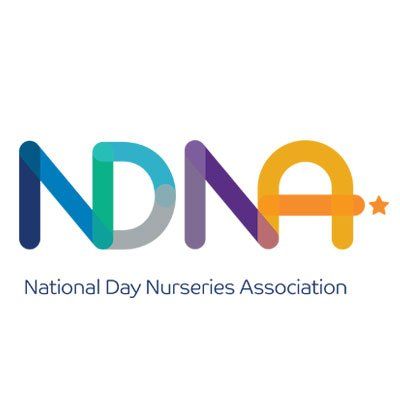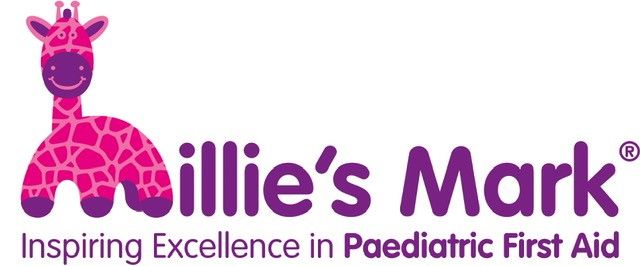Understanding and Supporting Gifted Children
Understanding and Supporting Gifted Children

Gifted children are those who demonstrate exceptional talent or intelligence in one or more areas. Recognising and supporting these children is crucial for their development and well-being. This article explores the characteristics of gifted children, their unique needs, and strategies for supporting them both at home and in school.
Identifying Giftedness in Children
Common Characteristics of Gifted Children
Gifted children often exhibit traits such as advanced language skills, intense curiosity, strong problem-solving abilities, and a keen sense of observation. They may also display high levels of creativity, emotional depth, and an ability to grasp complex concepts quickly.
Early Signs and Indicators
Early signs of giftedness can include reaching developmental milestones ahead of peers, an early interest in reading, a preference for older playmates, and an extraordinary memory. Parents and caregivers should observe these signs and seek further assessment if needed.
Formal Assessments and Testing
Formal assessments can help identify giftedness. These may include IQ tests, achievement tests, and evaluations by psychologists or educators specialising in gifted education. Early identification allows for timely support and enrichment.
Emotional and Social Needs
Understanding the Unique Emotional Needs of Gifted Children
Gifted children often experience heightened sensitivity and intense emotions. They may struggle with perfectionism, anxiety, and feeling different from their peers. It's important to provide emotional support and teach coping strategies.
Social Challenges and Peer Relationships
Social challenges can include difficulties in finding like-minded peers and experiencing social isolation. Encouraging participation in clubs, groups, or activities that align with their interests can help gifted children build meaningful relationships.
Strategies for Emotional and Social Support
Parents and educators should foster a supportive environment where gifted children feel understood and valued. Teaching social skills, providing opportunities for peer interaction, and encouraging open communication about their feelings can help.
Academic Needs and Enrichment
Differentiated Instruction and Curriculum
Gifted children require differentiated instruction to meet their advanced learning needs. This can include accelerated learning, curriculum compacting, and individualised projects that challenge their abilities.
Enrichment Programs and Opportunities
Enrichment programs, such as specialised classes, extracurricular activities, and summer camps, provide additional opportunities for gifted children to explore their interests and talents. These programs can stimulate intellectual growth and keep children engaged.
Importance of Challenging and Engaging Gifted Children
Keeping gifted children challenged and engaged is crucial for their academic and personal development. Providing opportunities for deep learning and exploration prevents boredom and promotes a love of learning.
Supporting Gifted Children at Home
Creating a Stimulating Home Environment
A stimulating home environment includes access to books, educational materials, and creative tools. Encourage exploration and provide resources that match the child's interests and abilities.
Encouraging Intellectual Curiosity and Creativity
Foster intellectual curiosity by encouraging questions, discussions, and exploration. Support creative endeavours such as art, music, writing, or scientific experiments, and celebrate their unique talents.
Balancing Academic and Personal Development
While academic achievement is important, it's also essential to support personal development. Encourage hobbies, social activities, and family time to ensure a well-rounded upbringing.
Working with Schools and Educators
Advocating for Your Child's Needs
Parents should advocate for their child's educational needs by communicating with teachers and school administrators. Understand the school's policies on gifted education and seek appropriate accommodations and opportunities.
Building a Partnership with Teachers and School Administrators
Develop a collaborative relationship with teachers and school administrators. Regular meetings, open communication, and mutual respect can help create a supportive educational environment for gifted children.
Navigating Gifted Education Programs
Explore gifted education programs offered by the school, such as advanced classes, pull-out programs, or dual enrolment opportunities. These programs can provide the necessary challenge and enrichment for gifted students.
Addressing Common Challenges
Dealing with Perfectionism and Fear of Failure
Gifted children often struggle with perfectionism and fear of failure. Teach them to set realistic goals, embrace mistakes as learning opportunities, and develop resilience.
Managing Asynchronous Development
Asynchronous development, where intellectual abilities outpace emotional or social skills, is common among gifted children. Support them by recognising their unique developmental trajectory and providing appropriate challenges and support in all areas.
Supporting Twice-Exceptional (2e) Children
Twice-exceptional children are gifted children with learning disabilities or other challenges. These children require specialised support to address both their giftedness and their additional needs.
Sources and Support Networks
Finding Local and Online Resources
Numerous resources are available to support gifted children and their families, including books, websites, and organisations dedicated to gifted education. These resources can provide valuable information and support.
Joining Support Groups and Communities
Joining support groups and communities for parents of gifted children can provide a sense of camaraderie and shared experience. These groups offer practical advice, emotional support, and opportunities for networking.
Utilising Professional Services and Counseling
Professional services, such as counseling or educational therapy, can benefit gifted children facing emotional or academic challenges. These services provide specialised support tailored to their unique needs.
Long-Term Considerations
Planning for Advanced Education and Career Paths
As gifted children grow, planning for advanced education and career paths becomes important. Explore opportunities for advanced coursework, early college enrolment, and internships to support their aspirations.
Encouraging Lifelong Learning and Passion Projects
Encourage gifted children to pursue lifelong learning and passion projects. Support their interests and provide opportunities for them to delve deeply into subjects they love.
Preparing for Potential Challenges in Adolescence and Adulthood
Gifted individuals may face unique challenges in adolescence and adulthood, such as finding their place in the world and managing high expectations. Providing ongoing support and resources can help them navigate these challenges successfully.
Celebrating Giftedness
Recognising and Celebrating Achievements
Celebrate the achievements of gifted children, both big and small. Recognise their hard work, creativity, and perseverance, and provide positive reinforcement.
Fostering a Positive Self-Concept and Self-Esteem
Help gifted children develop a positive self-concept and self-esteem by acknowledging their strengths and supporting them through challenges. Encourage self-acceptance and a healthy sense of self-worth.
Promoting a Balanced and Fulfilling Life
Encourage gifted children to lead balanced and fulfilling lives by pursuing a variety of interests and maintaining healthy relationships. Promote a holistic approach to their development, focusing on intellectual, emotional, and social well-being.
Conclusion
Understanding and supporting gifted children is essential for their overall development and well-being. By recognising their unique needs, providing appropriate challenges, and offering emotional and social support, parents and educators can help gifted children reach their full potential and lead fulfilling lives.
---
FAQs
1. What are the signs of a gifted child?
- Gifted children often exhibit advanced language skills, intense curiosity, strong problem-solving abilities, and a keen sense of observation. They may also show high levels of creativity and emotional depth.
2. How can parents support the emotional needs of gifted children?
- Parents can support the emotional needs of gifted children by providing a supportive environment, teaching coping strategies, and encouraging open communication about their feelings.
3. What academic strategies are effective for gifted children?
- Effective strategies include differentiated instruction, enrichment programs, accelerated learning, and individualised projects that challenge their abilities.
4. How can parents advocate for their gifted child's educational needs?
- Parents can advocate for their child's needs by communicating with teachers and school administrators, understanding school policies on gifted education, and seeking appropriate accommodations and opportunities.
5. What resources are available for supporting gifted children?
- Resources include books, websites, organisations dedicated to gifted education, support groups, professional services, and counseling tailored to the needs of gifted children.

















